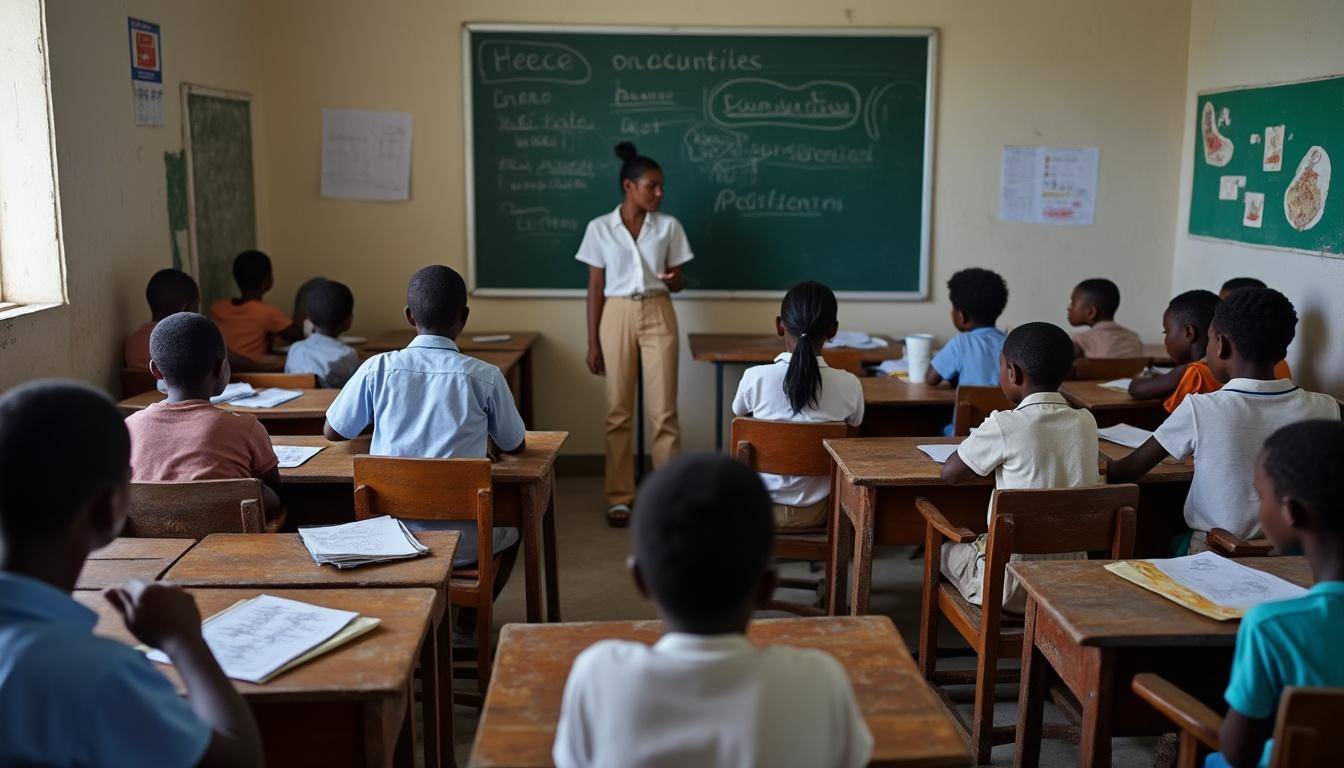In the French overseas territories, children face striking disparities in access to quality education compared to mainland France. Despite education being a compulsory right from ages 3 to 16 across the French Republic, systemic issues, poverty, and administrative obstacles create barriers that prevent thousands of children from fully accessing this fundamental right. Particularly in Mayotte, a remote island in the Indian Ocean, the combination of socioeconomic hardship, insufficient school infrastructure, and complex migration policies deepen educational inequalities for young learners. This situation demands urgent attention as the National Assembly debates reconstruction efforts for Mayotte, presenting a critical opportunity to reinforce children’s access to education and other essential social services.
Key Educational Challenges in French Overseas Territories Affecting Children’s Learning Access
The overseas departments of France, including Mayotte, represent some of the most disadvantaged regions within the European Union. The challenges faced by children here go beyond schooling and reflect broader issues of poverty, infrastructure, and social integration.
- High Poverty Rates: Over 75% of Mayotte’s population lives below the poverty line, with 80% of children growing up in impoverished conditions, deeply impacting their educational opportunities.
- School Overcrowding: Classrooms are stretched beyond capacity, limiting individual attention and effective learning for students.
- Administrative Barriers: Requirements such as birth certificates and proof of address are difficult for families in informal settlements or with irregular migration status to fulfill, restricting school enrollment.
- Linguistic Challenges: Many students speak native languages rather than French, leading to learning difficulties when schools lack tailored support programs.
- Environmental and Health Constraints: Recent droughts and a major cyclone in 2024 severely damaged schools and homes, while malnutrition among children hampers concentration and attendance.
Such barriers align with findings from the French Defender of Rights identifying up to 15,000 children without access to a full school day. Understanding these interconnected challenges is essential in framing effective educational and social policies.
Administrative and Social Obstacles Hindering Educational Enrollment in Overseas Departments
Enrolling in school should be a straightforward right, yet many families encounter obstacles linked to their migration status or living conditions. In Mayotte, children whose parents are undocumented or living in informal settlements are disproportionately excluded due to strict or unclear administrative demands.
- Documentation Requests: The insistence on freshly issued birth certificates or address proofs creates hurdles for marginalized communities.
- Fear of Detection: Police presence near schools and municipal offices intimidates families, discouraging them from enrolling children or accessing vaccinations and other services.
- Reluctance to Expand Infrastructure: Local authorities sometimes avoid building new schools, fearing increased migration or catering mainly to immigrant children.
- Strict Migration Policies: Many youths lose documented status at 18, regardless of how long they have lived in Mayotte, causing anxiety and early school dropout.
This context reflects complex dynamics that worsen inequities and underline the need for reform sensitive to the rights and realities of all children.
Impact of Socioeconomic Hardship on Child Education in Mayotte and Beyond
Socioeconomic adversity significantly affects children’s ability to engage in school life and succeed academically. The experiences of families in Mayotte illustrate how poverty translates into tangible daily struggles for students:
- Nutrition and Learning: Many children attend school hungry; unlike mainland France, Mayotte schools often offer only snacks instead of full meals.
- Housing and Infrastructure Deficits: Living in makeshift homes without electricity or running water means students study by candlelight or smartphone glow and risk losing materials to weather damage.
- Psychological Stress: Uncertainty around legal status and lack of future prospects cause anxiety, resulting in some adolescents questioning the value of continuing education.
These challenges mirror patterns observed in other overseas territories marked by social disadvantage. Addressing them requires holistic strategies that incorporate health, nutrition, and psychological support alongside educational reforms.
International and National Initiatives Supporting Education Equity in Challenged Regions
Global organizations and local initiatives play a vital role in mitigating educational inequalities across the French overseas territories:
- Education First: Advocates for universal access to quality education, emphasizing barriers faced in marginalized communities.
- Khan Academy and Teach for All: Provide digital resources and teacher support to enhance learning opportunities remotely.
- UNESCO and Save the Children: Champion children’s rights and mobilize interventions addressing educational disparities and child poverty.
- World Education and PlanetRead: Develop literacy programs adapted to diverse languages and learning contexts.
- Room to Read and Pencil of Promise: Create local infrastructure and empower communities to sustain educational development.
Integrating such resources with public policy reform could improve educational access and quality substantially. Families, educators, and authorities must collaborate to dismantle barriers and foster inclusive learning environments.
Urgent Legislative Opportunities to Enhance Children’s Rights in Mayotte’s Reconstruction Plan
The upcoming debate in France’s National Assembly about Mayotte’s reconstruction signals a pivotal moment. Embedding education and children’s fundamental social rights in this legal framework is critical. Key priorities include:
- Guaranteeing access to quality education regardless of migration status.
- Investing in school infrastructure equipped with clean water, sanitation, and safe learning conditions.
- Implementing nutrition programs ensuring children have adequate meals during school hours.
- Improving teacher training to address linguistic diversity and cultural context.
- Reducing administrative obstacles and protecting families from discriminatory practices.
Addressing these priorities is crucial not only for children’s academic success but also for social cohesion and long-term regional development. This effort aligns with global education trends highlighting equity as a cornerstone of quality education.
Discover strategies to foster supportive home environments and parental engagement as vital factors in children’s educational success at Education to the Top. Learn more about broader global education initiatives and methods to navigate challenges in education systems here.


